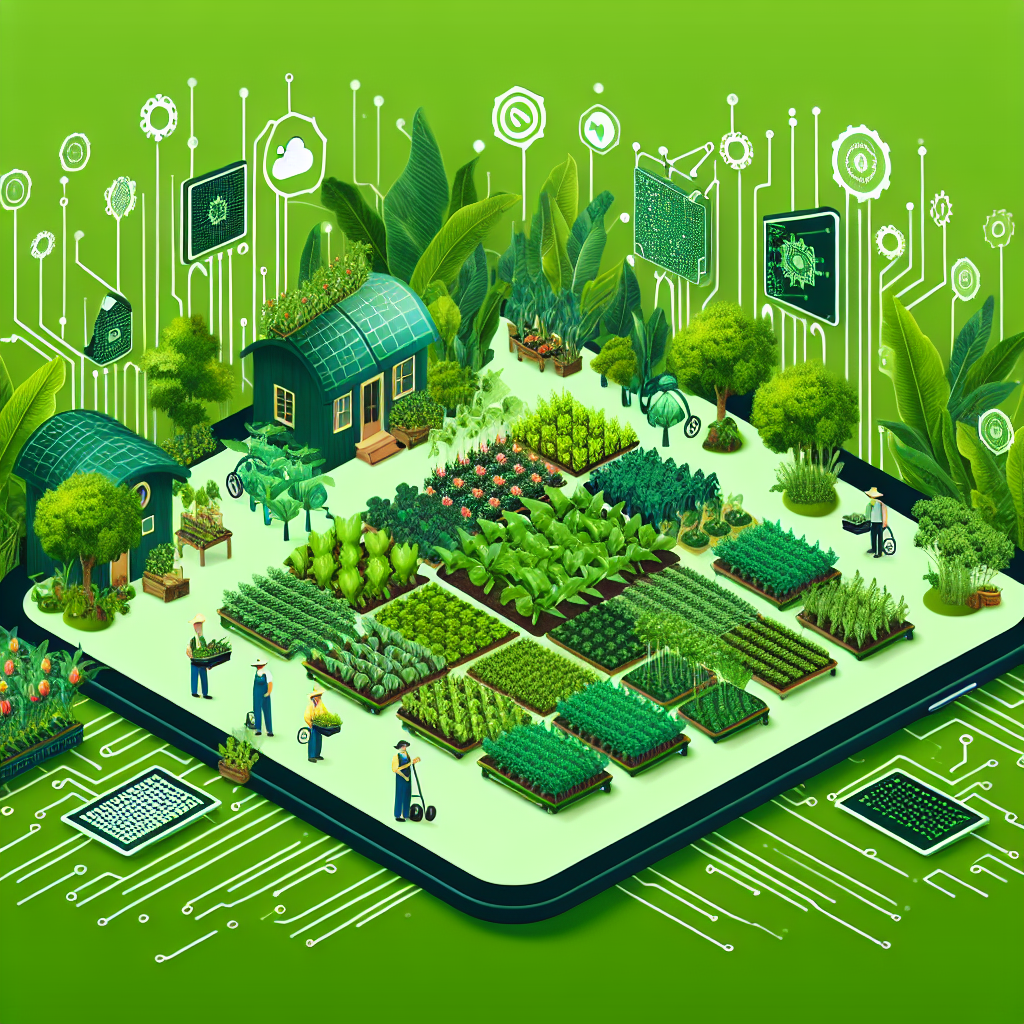Cultivating Community: The Impact of Green Gardens Community Farm
Explore the significance of community farms like Green Gardens in promoting sustainable agriculture, engaging local neighborhoods, and fostering social cohesion. Discover the benefits of community farms and gain expert insights into their crucial role in connecting people with their food sources and building a sense of empowerment. Join the movement to support and engage with local community farms for a more sustainable future.

Overview of Green Gardens Community Farm
Community farms, such as Green Gardens, embody the essence of sustainable agriculture by integrating ecological principles, community engagement, and food production. These farms serve as hubs for connecting people with their food sources, promoting environmental stewardship, and fostering a sense of belonging within local communities.
Sustainable Farming Practices
Implementing organic farming methods
One of the core principles of community farms like Green Gardens is the implementation of organic farming methods. By avoiding synthetic chemicals and pesticides, these farms prioritize soil health, biodiversity, and long-term sustainability. According to Dr. Emily Wong, a renowned agronomist, "Organic farming practices not only produce healthy food but also contribute to preserving the environment for future generations."
Using permaculture design principles
Permaculture design principles guide the layout and management of community farms to mimic natural ecosystems and maximize efficiency. By observing patterns in nature and working with the land, farmers at Green Gardens create regenerative systems that enhance biodiversity, soil fertility, and water conservation.
Water conservation and soil health
Water conservation plays a vital role in sustainable farming practices. Community farms often implement rainwater harvesting, drip irrigation, and soil moisture management techniques to optimize water use and protect local water resources. Additionally, practices such as cover cropping and composting improve soil health and contribute to carbon sequestration.
Community Engagement
Involving local neighborhoods
Community farms actively involve local neighborhoods in their operations through community-supported agriculture (CSA) programs, farm tours, and community events. By building relationships with residents, Green Gardens creates a sense of ownership and responsibility towards the farm's success.
Educational programs and workshops
Education is a cornerstone of community farms, with programs ranging from sustainable agriculture workshops to youth gardening initiatives. These educational opportunities not only empower individuals with knowledge but also inspire a deeper connection to the food they consume.
Volunteering opportunities
Volunteering at a community farm like Green Gardens provides individuals with hands-on experience in sustainable agriculture, fosters a sense of community, and promotes active participation in local food systems. Volunteers play a vital role in supporting farm activities, from planting to harvesting.
Case Study: Successful Agricultural Initiatives
Example: Partnership with local schools
Green Gardens has established successful partnerships with local schools to integrate food education into the curriculum. By engaging students in farm-to-school programs, the farm promotes healthy eating habits, environmental awareness, and hands-on learning experiences.
Example: Farmers' market collaboration
Collaborating with local farmers' markets allows Green Gardens to reach a broader audience and showcase their organic produce. Farmers' markets serve as vibrant community hubs where residents can directly support local farmers and access fresh, nutritious foods.
Example: Food donation program
Green Gardens actively participates in food donation programs to address food insecurity in the community. By donating surplus produce to local food banks and shelters, the farm supports vulnerable populations and reduces food waste.
Benefits of Community Farms
Enhancing food security
Community farms play a crucial role in enhancing food security by providing access to fresh, locally grown produce, especially in underserved areas known as food deserts. By promoting urban agriculture and community-supported agriculture, these farms contribute to a more resilient and equitable food system.
Promoting environmental stewardship
By prioritizing sustainable farming practices, community farms like Green Gardens promote environmental stewardship and conservation of natural resources. Through practices such as composting, crop rotation, and agroforestry, these farms minimize environmental impact and foster biodiversity.
Fostering social cohesion
Community farms serve as gathering spaces that bring diverse groups of people together around a shared interest in agriculture and food. By fostering social connections, cooperation, and cultural exchange, these farms contribute to building vibrant and resilient communities.
Expert Insights
"Community farms play a crucial role in connecting people with their food source." - Dr. Sarah Johnson, Agricultural Scientist
Dr. Sarah Johnson emphasizes the integral connection between community farms and food security, highlighting the role of these farms in bridging the gap between consumers and producers.
"Engaging the community in sustainable agriculture builds a sense of ownership and empowerment." - Dan Smith, Environmentalist
Environmentalist Dan Smith underscores the transformative power of engaging communities in sustainable agriculture, emphasizing the sense of ownership and empowerment that arises from participating in local farming initiatives.
Conclusion
Community farms like Green Gardens represent more than just spaces for food production; they embody the values of sustainability, community engagement, and social responsibility. By supporting and engaging with local community farms, individuals can contribute to a more resilient and connected food system that benefits both people and the planet.
Call to Action
As we recognize the importance of community farms in promoting sustainable agriculture and community resilience, I encourage you to take action:
Join a community farm near you: Explore opportunities to volunteer or participate in community-supported agriculture programs.
Share knowledge about the benefits of community agriculture with others: Educate your friends and family about the significance of supporting local farms and sustainable food systems.
Volunteer or support initiatives that promote sustainable farming practices: Get involved in community farm events, workshops, or fundraising efforts to contribute to a more sustainable future for all.